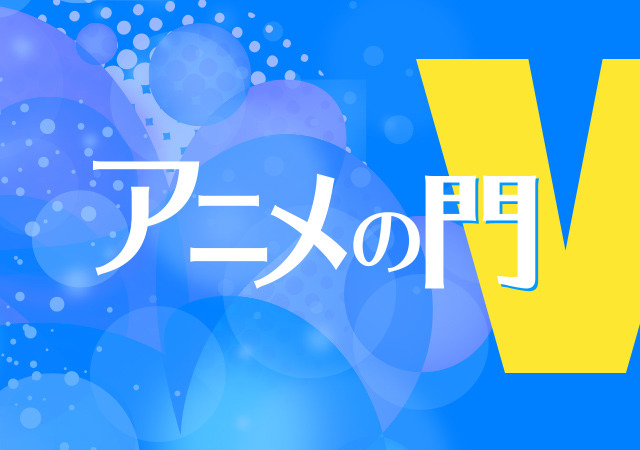※This article will mention the important point of the movie “Belle”.
There is a small railway crossing near the house. When a child was young, I remember crossing it every day when taking him to the kindergarten. I always get nervous to cross it with a child and simulates anything “you wish not to happen”.
First, if a child was left on the crossing and unable to move due to some trouble, what should I do? Since I already have a solution to this, so there is no problem.
Then, what if someone left on the crossing was a random child or an adult, what should we do? The solution is “to push the emergency button and refrain from entering the railway”. However, if you did it but ended with unsatisfied result, is there not any regret? For me, I am certain that I will live with the strange emotion until I die.
There might be the action that only you could conduct. Meanwhile, you question yourself that you went against it because of “righteousness”. You will blame yourself that you were just scared. You never can get the complete decision because you never would know the decision you did not take and you cannot stop blaming yourself.
If you could give the clear solution, you do not have to keep reading from here. That is one way to cope. As a reminder, the relationship between “difficultness of giving a clear solution” and “Belle” will be discussed from this point, so there will be no value for the people, who can give the clear solution to the complex issue.
The fictional story “Belle” has a strong connection between “unclear justice”.
The central factor of “Belle” is the relationship between a mother and a child. The protagonist Suzu (Full name: Naitou Suzu) lost her mother when she was young. Her mother died by drowning after jumping into the overflowing river to rescue a child of a stranger. Since that day, a complex question, “Why did my mother leave me that day?”, stays inside her. She lost her willingness to sing, which was her favorite thing to do, and now she is a high school student.
Realistically, the action of Suzu’s mother is “incorrect”. An untrained person should not attempt to rescue until the professional life savers arrive. There is a scene of her mother negatively explained on the internet in the movie. However, this mistake is the important factor of the movie and the reason why the fiction movie is fictional.
Then turning point arrived on Suzu. She registered to the virtual reality of the internet “U”, naming her avatar-As as “Belle”, and learns that she can sing inside “U”. Belle becomes the popular being in “U” in less than 6 months. She then meets “a Dragon”.
“Dragon” is hated by people of “U”. He is the continuous target of hate from the peacekeeper of “U”. However, Belle is curious of the Dragon, and the story of them begins.
Dragon gradually loses his territory in “U”. To rescue the Dragon, Belle now has to find the identity of Dragon, in other words, the player. She luckly finds out that the player of the Dragon is a older brother (Kei) of the siblings that have, who has been abused by their bossy father. Suzu begins to communicate through the video chat, but Kei does not believe that Suzu is Belle, and rejects the offer of help provided by Suzu.
Suzu has to prove that she is Belle to help Kei and his younger brother Tomo. For proof, Suzu has to get rid of her avatar and sing as Suzu in “U”. If she did that, she might lose all her fame and popularity that she currently has and may lose self-confidence. After thinking for a long time, she decides to reveal her true identity in “U”.
While singing as Suzu, she finally understands the reason of her mother’s action. That day, her mother went to help the child because “it only can be accomplished by her”, as she is currently trying to help the Dragon=Kei.
People often face “the unclear righteousness” in reality. In the situation, people cannot do anything but question themselves, “Could I help someone even with the wrong decision”. Therefore, I want fictional stories to depict “making mistake in a correct way”.
Because “the unclear righteousness” is always the absolute reality, actions ignoring the reality and taking wrong justice on purpose will become the salvation. What is on the basis of “unclear feeling” of failing to help someone with the correct action is the regret that “If that could be only accomplished by me, I should have done it”. This regret will be salvaged by “wrong justice” in fictional stories.
Because “unclear justice” is reality, it can easily change into “giving clear decision”. However when everything becomes “clear”, “benefit of others” and “kindness”, which are the motivation of all actions, will lose value. That is why “wrong justice” in fiction is wanted. Because fiction depicts “wrong correctness”, we can believe that suffering from questions without answer is a proof of the existence of “justice” such as others’ benefit and kindness. Although “unclear correctness” in reality and fiction exist on opposite extremes, they are strongly connected in the deep spot.
On the final scene of the movie, Suzu goes to Tokyo from Kouchi to rescue Kei and others. From this point, to emphasize Suzu conducting “what only she can do at the moment of life”, it is unrealistic and reckless plan from the realistic view. This event is not questionable for many people because “this is not correct from the realistic point of view”. However this movie has been depicting “making a mistake correctly” throughout the story since the mother’s event at the beginning. Therefore Suzu’s action at the end is reasonable if you think it as the same as her mother’s action (but I also agree that the movie should have been more careful when depicting about child care center. However, I won’t “keep accounts” to value the movie by adding up or subtracting such good and bad points either).
With Suzu’s “incorrect action with justice”, the important point of the movie appears. It is “body” that connects people. The setting of As of “U” reflecting the senses of humans also follows the point.
Suzu meets Kei and Tomo in Tokyo in rain. All 3 hug right after the encounter. The importance is the fact that Belle with living body comes to Tokyo and hugs the two. Kei reconfirms that Suzu is Belle with the hug.
Meanwhile, the father appears to retrieve Kei and Tomo and injures Suzu. While Suzu’s face is hurt and blood leaking, she faces their father without wiping off her blood. Their father cannot punch Suzu to see her such attitude.
Their father is overwhelmed by Suzu because she stands in front of him as a stranger with body. Their father controls his children with force because he does not recognize ownership of his children’s body and believes that they are his belongings. Home for him is the environment filled with his ego, not the space to coexist with others. In other words, he does not live in real world.
Therefore Suzu as “a stranger with living body” makes him unreachable and being overwhelmed by with “stranger’s body”.
Abused children should be rescued with law. However, that does not prove that body will salvage humans. Description of crushing the father’s world is unrealistic if you consider the legal system. What only Suzu “could do at the moment” is to hug the brothers in real world, as she did in “U”. The two worlds are connected through “physical experience” and provided as the world of equal value.
The audience finally learns why the virtual reality is called “U” and links the physical sensitivity. There may be various complex reasoning in terms of the story setting,, but “U” means “YOU”.
This “YOU” does not mean plural “you” but singular “you”. “YOU” as “the person who you want to rescue regardless of making a mistake”. Also “physical body” simultaneously distinguishes and connects “me” and “you”. If this movie positively describes the internet world, then this place is the place of meeting new person “whom your existence will be the life saver for”.
Not many people can be helped by other people in the reality. The social system is more likely to help the people. However, as the method of directing “others benefit” and “kindness”, fictional stories to “make a wrong correctness” to “do what only you can do” are needed.
Therefore, Suzu carried out such a “wrong but correct decision” with such reason.






